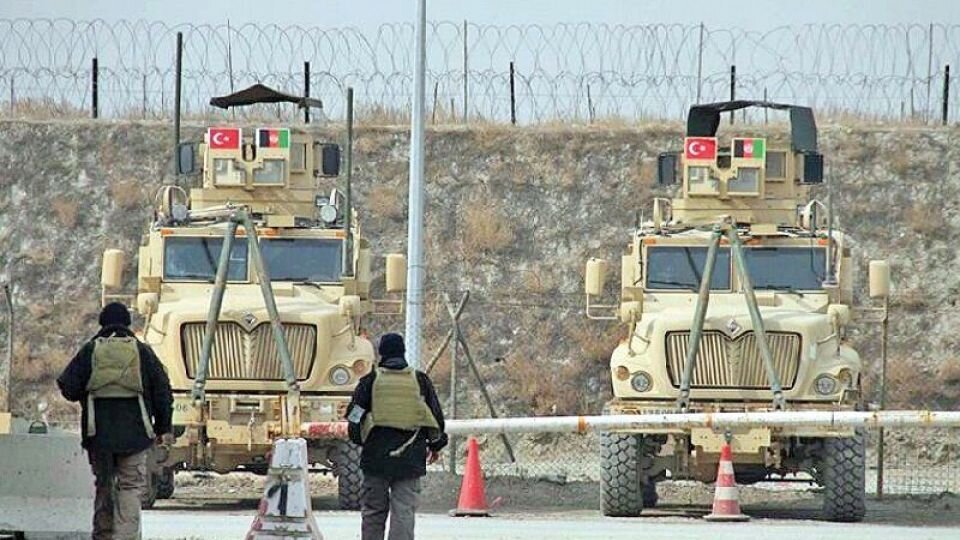Speaking in an interview with the website of the Strategic Council on Foreign Relations on the background of Turkey’s presence in Afghanistan, Hassan Ashrafi said: Such a background should be sought during the Ottoman period and especially after the establishment of the Republic of Turkey. During that period, Amanullah Khan, the King of Afghanistan, met Mustafa Kemal Ataturk on a historic trip in late 1927 and returned to Kabul in June 1928 seven months later, after signing a cooperation document.
In response to the question of what targets Turkey is pursuing in the new situation in Afghanistan, Ashrafi said: Managing tensions with the West, establishing the Azure Route connecting Afghanistan to the Black Sea via Turkmenistan, the Republic of Azerbaijan and Georgia, and finally to the Mediterranean Sea and Europe via Turkey, strengthening Turkey’s position in the subcontinent region, approaching to China as the center of the world economy and, continuation of Ottoman policies.
Noting that Turkey intends to dispatch terrorist groups present in Syria and Libya to Afghanistan in order to control that country’s security environment, he added: The responsibility of maintaining security of Kabul airport will provide the Turks with the opportunity to do so. In fact, Turkey wants to pose a security challenge to some countries in the region by removing some terrorist groups from its borders. Presence and activity of Turkish-backed terrorist groups on the borders of China, India and southern Russia is a major challenge to the security and economy of those countries and will provide a means for Ankara to enhance its presence in those areas and influence future regional developments.
The expert, also commenting about managing tensions with the West, said: As a NATO member, Turkey intends to repair its tense relations with the West by being present in Afghanistan and Kabul Airport, in line with the US and EU needs to manage the crisis in Afghanistan. From the US perspective, Turkey’ presence in Afghanistan will be less sensitive to the Taliban.
The Azure Route was another topic that the expert on Turkey affairs pointed out and explained: Turkey is particularly keen on the “Azure Route” or the same Lapis Lazuli corridor, project; a path that adds to Turkey’s geopolitical value as an energy gateway.
Emphasizing that “strengthening Turkey’s position in the subcontinent’ is another Turkey’s objective in its role playing in Afghanistan, Ashrafi continued: Ankara has close strategic and security relations with Islamabad, and if it can establish itself as an active player in Afghanistan, it will provide Turkey with the possibility to upgrade its role and position throughout the subcontinent, and gain new economic, political and security advantages.
According to the expert, getting closer to the center of the world economy, China, is also very important for Ankara. Further elaborating he said: China has now become an economic hub for Turkish businessmen, who are trying to transport their goods by train from Istanbul, Marmara and Europe to the eastern borders, from where they enter Georgia and by crossing the Republic of Azerbaijan, the Caspian Sea and Kazakhstan arrive in China. Therefore, being present in Afghanistan will provide more opportunities for economic cooperation between Ankara and Beijing.
Continuation of Ottoman policies was another issue pointed out by the expert on Turkey affairs, who continued: The northern regions of Afghanistan, namely Uzbekistan, Turkmenistan, Kazakhstan and Kyrgyzstan, are the most important axis for pursuing Turkic policies in what is known in Turkish political literature as the ‘Turkish World’. In the current situation, and especially after the recent developments in Karabakh and the agreement to build the Nakhchivan-Baku crossing, Turkey’s connection to the Ottoman world and the use of Afghanistan’s capacity to strengthen Turkey’s regional influence in that geographical area will be of particular importance.
But one of the targets that Turkey is pursuing, and it is very important for our country, is the issue of Turkey’s border and geographical connection with Afghanistan and Pakistan, so that Ankara pursues a policy of bypassing Iran from the north and directly influence the target areas the direct effect of which will be reduced dependence of Kabul and Islamabad on Tehran.
The expert added: In such circumstances, it seems necessary for Iran not to neglect active measures in the political and diplomatic arena; because some countries may based on past experience, prevent Iran from having an effective role in Afghanistan; while the Islamic Republic of Iran has a high potential for role-playing in Afghanistan.










0 Comments